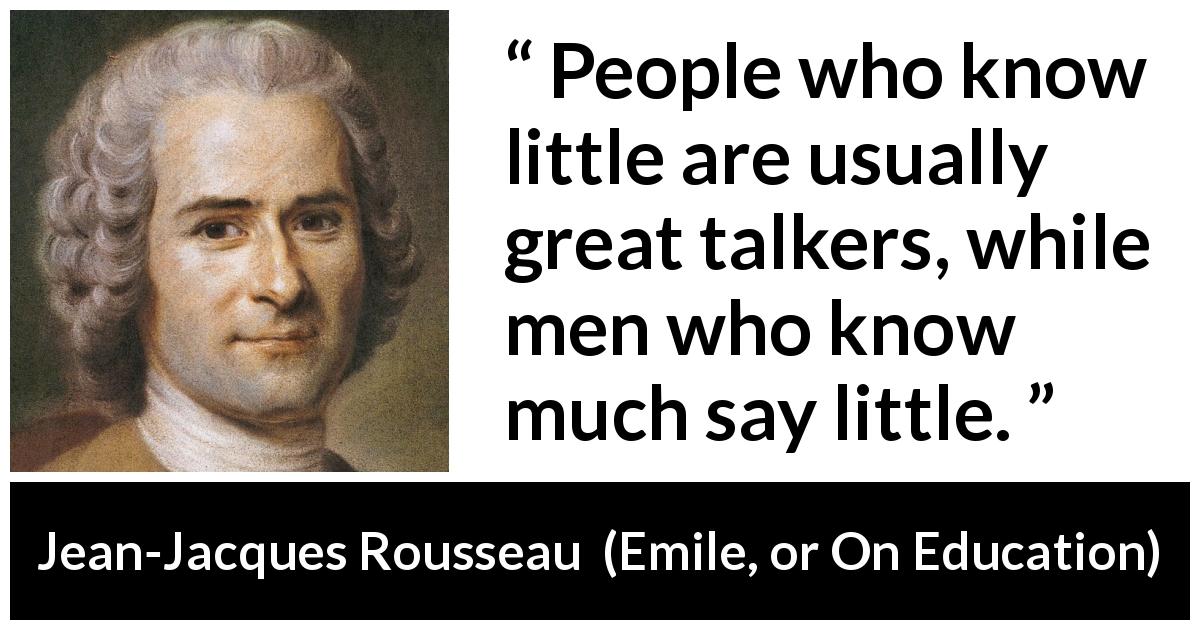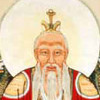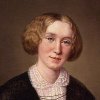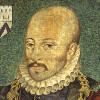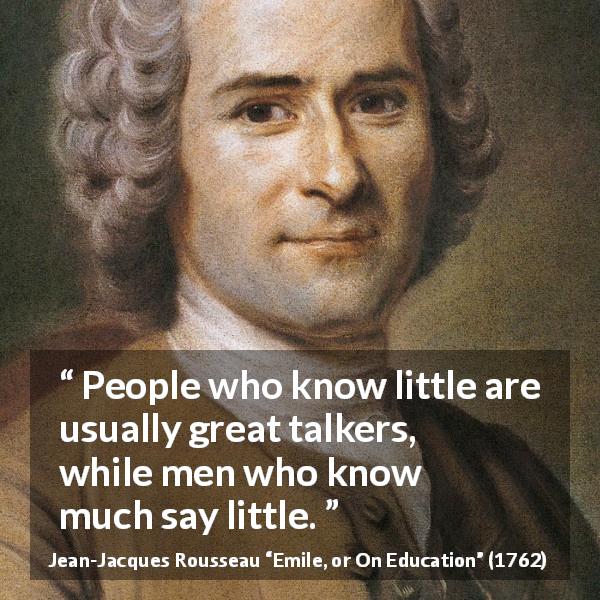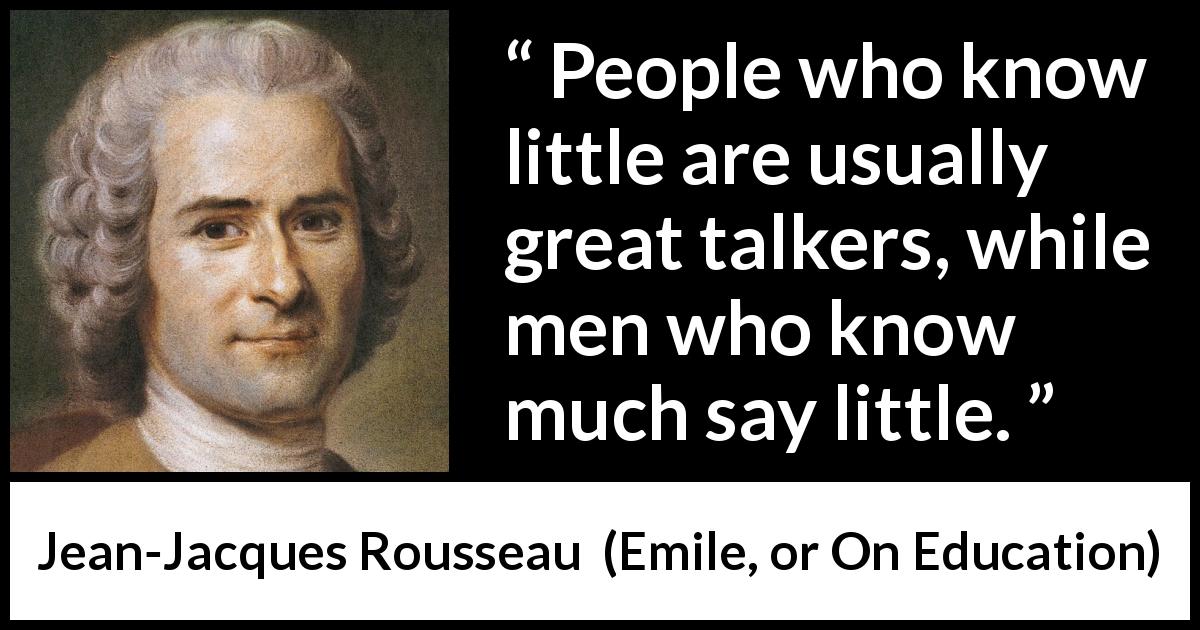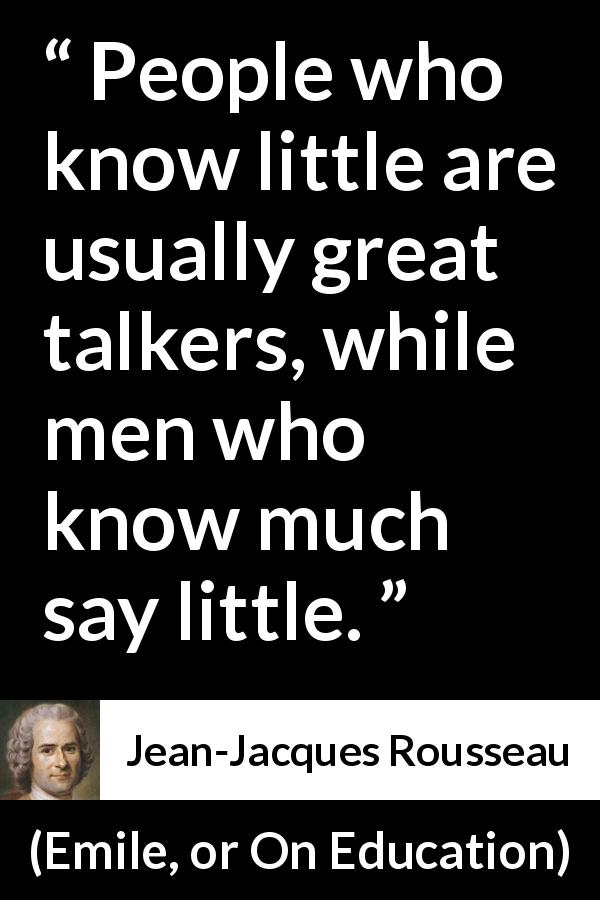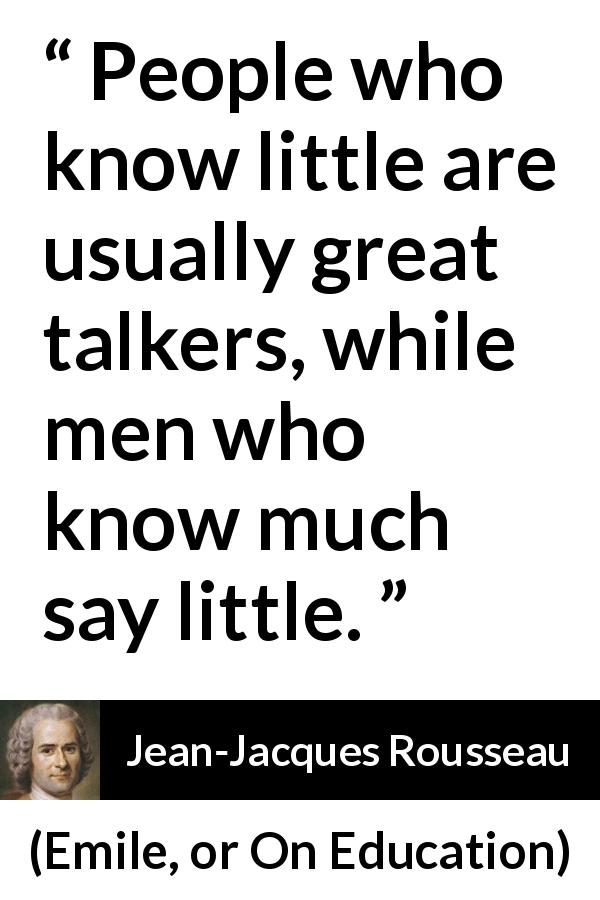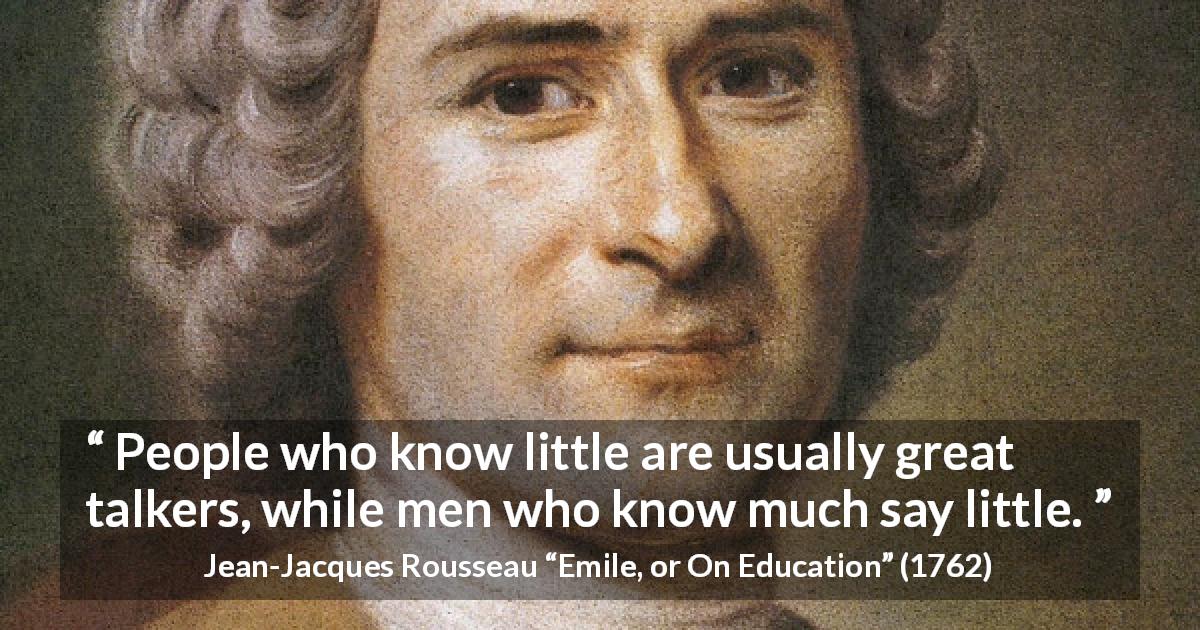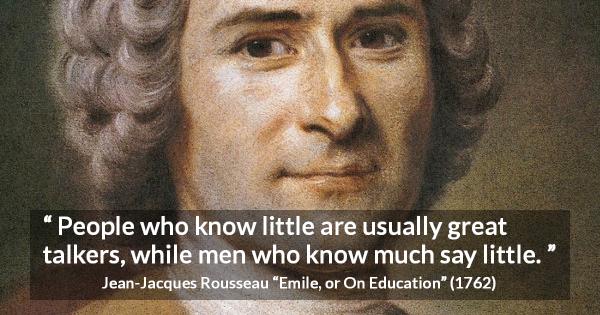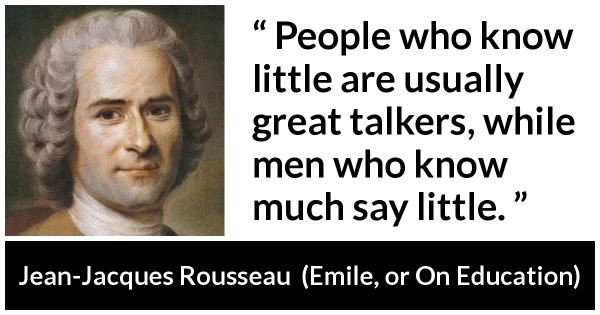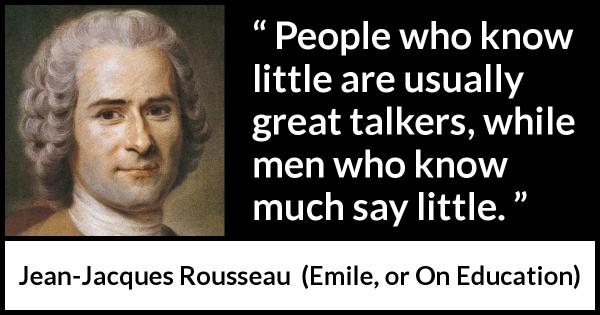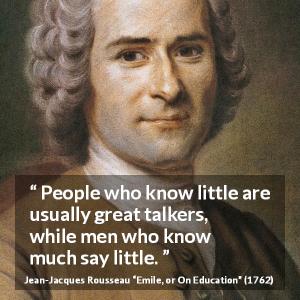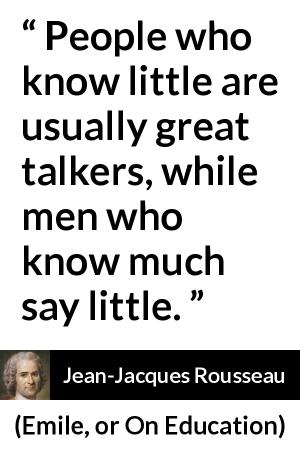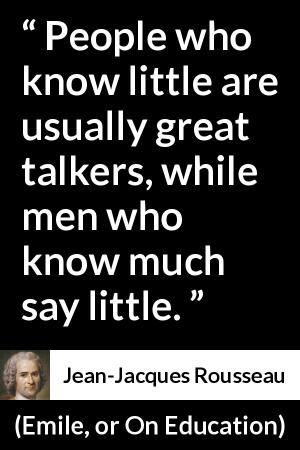“ People who know little are usually great talkers, while men who know much say little. ”
Jean-Jacques Rousseau, Emile, or On Education (1762). copy citation
| Author | Jean-Jacques Rousseau |
|---|---|
| Source | Emile, or On Education |
| Topic | ignorance knowledge talking |
| Date | 1762 |
| Language | English |
| Reference | |
| Note | Translated by Barbara Foxley |
| Weblink | http://www.gutenberg.org/cache/epub/5427/pg5427-images.html |
Context
“A great flow of words comes either from a pretentious spirit, of which I shall speak presently, or from the value laid upon trifles which we foolishly think to be as important in the eyes of others as in our own. He who knows enough of things to value them at their true worth never says too much; for he can also judge of the attention bestowed on him and the interest aroused by what he says. People who know little are usually great talkers, while men who know much say little. It is plain that an ignorant person thinks everything he does know important, and he tells it to everybody. But a well-educated man is not so ready to display his learning; he would have too much to say, and he sees that there is much more to be said, so he holds his peace.”
source
Meaning and analysis
Kwize Master
This sentence concludes a paragraph devoted to explaining that educated people, knowing the value of things, do not waste their words and try to make them useful. Indeed, those who talk too much do so because their ignorance leads them to believe that others will find the things they say as important as they do. An ignorant person knows little, so it is normal to give them all a high value and to seek to share them. On the contrary, an educated man, knowing everything there is to say, will hesitate before talking about something.
useful
useless
